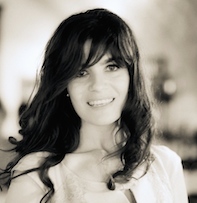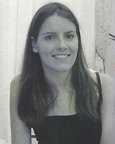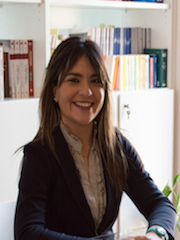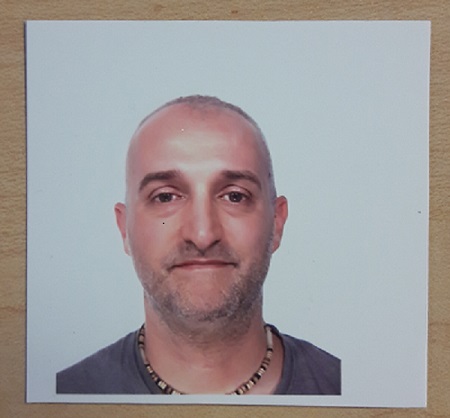Studying at the University of Verona
Here you can find information on the organisational aspects of the Programme, lecture timetables, learning activities and useful contact details for your time at the University, from enrolment to graduation.
Academic calendar
The academic calendar shows the deadlines and scheduled events that are relevant to students, teaching and technical-administrative staff of the University. Public holidays and University closures are also indicated. The academic year normally begins on 1 October each year and ends on 30 September of the following year.
Course calendar
The Academic Calendar sets out the degree programme lecture and exam timetables, as well as the relevant university closure dates..
| Period | From | To |
|---|---|---|
| Sem. 1A | Sep 21, 2020 | Oct 31, 2020 |
| Sem. 1B | Nov 9, 2020 | Jan 9, 2021 |
| Sem. 2A | Feb 15, 2021 | Apr 1, 2021 |
| Sem. 2B | Apr 14, 2021 | May 29, 2021 |
| Session | From | To |
|---|---|---|
| Sessione d'esame invernale | Jan 14, 2021 | Feb 13, 2021 |
| Sessione d'esame estiva | Jun 7, 2021 | Jul 24, 2021 |
| Sessione d'esame autunnale | Aug 23, 2021 | Sep 18, 2021 |
| Session | From | To |
|---|---|---|
| Sessione di laurea estiva | Jul 5, 2021 | Jul 10, 2021 |
| Sessione di laurea autunnale | Nov 8, 2021 | Nov 13, 2021 |
| Sessione di laurea invernale | Mar 28, 2022 | Apr 1, 2022 |
| Period | From | To |
|---|---|---|
| Festa di Ognissanti | Nov 1, 2020 | Nov 1, 2020 |
| Festa dell'Immacolata | Dec 8, 2020 | Dec 8, 2020 |
| Vacanze di Natale | Dec 24, 2020 | Jan 6, 2021 |
| Vacanze di Pasqua | Apr 2, 2021 | Apr 6, 2021 |
| Festa della liberazione | Apr 25, 2021 | Apr 25, 2021 |
| Festa del lavoro | May 1, 2021 | May 1, 2021 |
| Festa del Santo Patrono | May 21, 2021 | May 21, 2021 |
| Festa della Repubblica | Jun 2, 2021 | Jun 2, 2021 |
| Vacanze estive | Aug 9, 2021 | Aug 15, 2021 |
Exam calendar
Exam dates and rounds are managed by the relevant Humanistic Studies Teaching and Student Services Unit.
To view all the exam sessions available, please use the Exam dashboard on ESSE3.
If you forgot your login details or have problems logging in, please contact the relevant IT HelpDesk, or check the login details recovery web page.
Should you have any doubts or questions, please check the Enrollment FAQs
Academic staff
 gaia.cetrano@univr.it
gaia.cetrano@univr.it
 giorgia.decarli@univr.it
giorgia.decarli@univr.it
 annamaria.giarola@univr.it
annamaria.giarola@univr.it
 antonio.nocera@univr.it
antonio.nocera@univr.it
 luciano.pasqualotto@univr.it
luciano.pasqualotto@univr.it
 antonella.salvan@univr.it
antonella.salvan@univr.it
 carlo.soregotti@univr.it
carlo.soregotti@univr.it
 giorgio.zoccatelli@univr.it
giorgio.zoccatelli@univr.it
Study Plan
The Study Plan includes all modules, teaching and learning activities that each student will need to undertake during their time at the University.
Please select your Study Plan based on your enrollment year.
1° Year
| Modules | Credits | TAF | SSD |
|---|
2° Year activated in the A.Y. 2021/2022
| Modules | Credits | TAF | SSD |
|---|
3° Year activated in the A.Y. 2022/2023
| Modules | Credits | TAF | SSD |
|---|
1 module between the following| Modules | Credits | TAF | SSD |
|---|
| Modules | Credits | TAF | SSD |
|---|
| Modules | Credits | TAF | SSD |
|---|
1 module between the followingLegend | Type of training activity (TTA)
TAF (Type of Educational Activity) All courses and activities are classified into different types of educational activities, indicated by a letter.
Family and social policies (2021/2022)
The teaching is organized as follows:
Learning outcomes
Knowledge and understanding - Knowledge and understanding of main values underpinning social policies and social services Ability to apply knowledge and understanding - Ability to recognize the main causes of people needs and distinguish among their social, family and personal roots. - Ability to integrate one’s own action with the meanings and values of the welfare state reforms both at national and at the local level. LEARNING OUTCOMES The course aims at providing students with that knowledge and skills necessary to understand and analyze structures and changes of two relevant institutions in terms of social integration: welfare system and family. More specifically the part dedicated to Social policies will deal with the conceptual, methodological and cultural basis needed to analyze and interpret the genesis and modification of Welfare and Citizenship systems, with particular reference to the factors of the crisis affecting social policies and social inclusion systems. The part dedicated to the sociology of family will provide students with students critical tools for reading and interpretation of the relationship between families and social policies, taking as analysis perspective the role of women.
Program
------------------------
MM: SOCIOLOGIA DELLA FAMIGLIA
------------------------
Lessons will offer an analysis of the socio-cultural processes that have supported the modernization of Western societies. The topic will be developed by analyzing the changes they have caused as regards: a) the conception of the individual and subjective well-being; b) interpersonal relationships; c) the relationship between the individual and society; d) the role entrusted to the main social systems / institutions (market, state, family, third sector) in promoting well-being. In particular, the economic, social, cultural, demographic and political factors that support the dynamics of social change will be highlighted. The condition of women, in particular what is defined by Esping-Andersen as the "unfinished revolution", constitutes a key to understanding on the one hand the growing difficulties of having a family and fathering children, and on the other how to create a better welfare system. fair, efficient and supportive. In detail, the following contents will be addressed: Connections and interdependencies between family and welfare state in contemporary society and in post-Fordist society The human being and the family between nature and culture. Sociological interpretations of the family (analysis in historical perspective of the different sociological approaches to the theme). The modernization process and the main changes in the relationship between the individual and society. How does the semantics of family relationships change (the code of love). How family structures and relationships change. The problems that the practice of the profession encounters: in services for minors; in family mediation; in intercultural relations; in gender-based violence.
------------------------
MM: POLITICA SOCIALE
------------------------
The program is centered on the following points: 1. The origin and development of Welfare public systems: social factors and dynamics and sociological interpretations; 2. The crisis of public welfare systems: social factors and dynamics. 2a. the transition from Keynesian capitalism to the new liberal capitalism and consequences on social policies; 2b. the crisis of social policies is also a crisis of the legitimacy of democratic systems. . 3. From Solidarity and Public Inclusion to Penal Control. 4. Towards New Welfare System Configurations? 4a. New actors in social policies (association, cooperative system, market)
Bibliography
Examination Methods
------------------------
MM: SOCIOLOGIA DELLA FAMIGLIA
------------------------
The exam test aims to assess the student's ability to identify the cultural, social and political factors that underlie changes in the family, the new needs of families and the impact that new configurations of families structures have on welfare policies. For students who want to use it, at the end of the lessons, a written test will be held on a part of the program agreed with the teacher. The remainder of the program will be verified with an oral exam in the ordinary exam sessions of January, February, June, July, September. Those who do not complete the exam by taking the second oral exam by February 2023 must take the exam on the entire program in oral form. Those who do not take the written exemption tests must take the entire oral program, in normal oral exams. Attending the course lessons is compulsory. Attendance is considered fulfilled, only if students have attended at least 2/3 (24 hours) of lessons in person or online (via Zoom in streaming mode). Listening to the recorded lessons is not counted for the purpose of fulfilling the obligation to attend
------------------------
MM: POLITICA SOCIALE
------------------------
The assessment of the learning outcomes will be: - written assessment of the acquired knowledge. The written test is intended to ascertain the knowledge of the topics under discussion and the ability to read critically the evolutionary dynamics of Welfare systems. Content and method of carrying out the assessment tests Written exam questions may cover all the topics discussed in the course. There will be 3 open questions related to the topics of social policy discussed in the course. Also the material presented during the lessons (slide, any scientific articles) will be evaluated: Each of the 3 questions will be assigned a score ranging from 0 to 10 points, for a total of 30 / 30 in case of all correct answers. ERASMUS students are asked to contact the teacher at the beginning of the courses to agree on the teaching and examination procedures together.
Type D and Type F activities
Modules not yet included
Career prospects
Module/Programme news
News for students
There you will find information, resources and services useful during your time at the University (Student’s exam record, your study plan on ESSE3, Distance Learning courses, university email account, office forms, administrative procedures, etc.). You can log into MyUnivr with your GIA login details: only in this way will you be able to receive notification of all the notices from your teachers and your secretariat via email and soon also via the Univr app.
Student mentoring
Linguistic training CLA
Gestione carriere
Practical information for students
Documents
| Title | Info File |
|---|---|
|
|
pdf, it, 325 KB, 02/05/23 |
|
|
pdf, it, 212 KB, 02/05/23 |
|
|
pdf, it, 131 KB, 02/05/23 |
Graduation
Documents
| Title | Info File |
|---|---|
|
|
pdf, it, 99 KB, 13/10/23 |
|
|
pdf, it, 101 KB, 10/04/24 |
List of theses and work experience proposals
| theses proposals | Research area |
|---|---|
| Proposta tesi | Various topics |
Assistente Sociale
Comune e Università di Verona collaborano per la formazione alla professione di assistente sociale.
Professione Assistente Sociale
Pagina aggiornata il 18/1/2022
Stage e Tirocini
Le attività̀ di tirocinio degli studenti si svolgono presso strutture esterne, convenzionate con l’Università degli Studi di Verona ai sensi delle vigenti disposizioni in materia. Nelle strutture esterne gli studenti svolgono le attività di tirocinio sotto la responsabilità di un assistente sociale (Tutor-supervisore), appartenente a dette strutture, coordinato a sua volta dal responsabile del tirocinio presso il Corso di Studio.
In assenza di un assistente sociale, operante nella struttura esterna, il Collegio didattico, per quanto di competenza, decide, su proposta dei responsabili del tirocinio, in ordine alle condizioni per l’effettuazione o la prosecuzione delle attività di tirocinio degli studenti interessati. Le attività di tirocinio sono obbligatorie per almeno 450 ore.
Il Collegio didattico, in deroga alle disposizioni del presente articolo, può consentire a studenti che si trovino in particolari condizioni, in specie se disabili, lavoratori o impegnati in organismi collegiali dell’Università degli Studi di Verona, di non ottemperare in parte all’obbligo di frequenza alle attività di tirocinio, predisponendo forme alternative di tirocinio, anche tramite supporti telematici e multimediali interattivi.
I responsabili delle attività di tirocinio presso il Corso di Studio, anche avvalendosi di appositi collaboratori o tutori esterni, accertano la presenza degli studenti presso le rispettive strutture. A tal fine utilizzano un apposito libretto di frequenza per ciascuno studente.
Al termine dell’attività di tirocinio, lo studente deve presentare una relazione scritta al responsabile di tale attività presso il Corso di Studio. Lo studente elabora la relazione scritta, controfirmata dal Tutor-supervisore. La relazione finale viene valutata dal responsabile del tirocinio presso il Corso di Studio e deve tenere conto degli obiettivi prefissati dal Collegio didattico.
La valutazione viene attribuita al tirocinio nel seguente modo: sufficiente = 1; buono = 2; ottimo = 3; eccellente = 4 e verrà aggiunta alla media dei voti del curriculum al momento della discussione della tesi.
Gli Uffici della Direzione Didattica e Servizi agli Studenti predispongono la documentazione necessaria allo svolgimento delle attività̀ di tirocinio, comprese attestazioni e certificazioni.
Nel caso in cui lo studente partecipi a programmi di mobilità internazionale, le attività̀ di tirocinio vengono regolamentate come segue:
A – Lo studente svolge il Tirocinio presso la sede estera.
Se lo studente svolge il Tirocinio all’estero si ritengono assolti gli obbligo relativi al Laboratorio se:
- - lo studente aggiorna il proprio docente/tutor con brevi relazioni mensili da inviare mezzo mail, sull’andamento del lavoro svolto presso la sede estera;
- - produce una relazione finale completa del tirocinio svolto.
La valutazione finale del laboratorio di guida al tirocinio sarà̀ effettuata da parte del tutor del laboratorio sulla base della relazione dello studente tenendo conto della eventuale valutazione da parte del supervisore estero.
B – Lo studente non svolge il Tirocinio presso la sede estera.
Se lo studente non svolge il Tirocinio nella sede estera e lo deve fare al rientro:
lo studente effettua uno/due incontri individuali iniziali con il docente/tutor in cui predisporre quanto necessita per l’avvio del tirocinio e nei quali verranno forniti materiali, griglie ed eventuali testi di riferimento;
invia brevi relazioni mensili sull’andamento del tirocinio che sarà svolto in Italia al di fuori del periodo in cui si tiene il laboratorio di guida al tirocinio;
produce la relazione finale completa del tirocinio svolto”.
- Tutte le informazioni in merito agli stage per futuri studenti sono disponibili alla pagina Stage e tirocini.
- Tutte le informazioni in merito agli stage per studenti iscritti sono pubblicate in MyUnivr - come fare per - stage e tirocini.
- Tutte le informazioni in merito agli stage per le aziende sono disponili alla pagina Stage e tirocini per azienze.
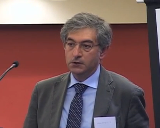
 045 8124930
045 8124930





